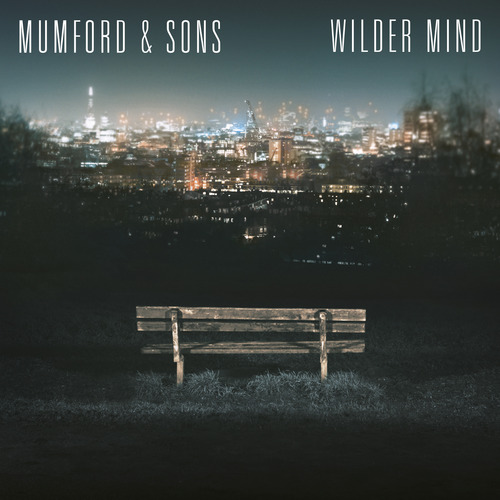
Though they’ve spent the last half-decade defying rock’s slow, paleontological decline, it’s been tough to shake the feeling that Mumford & Sons have just been engaging in a phenomenally successful dress-up session. Formed in 2007 around the songs and personality of Marcus Mumford, the London foursome turned their appreciation for American folk and roots music and a shared interest in literature and religion into a sort of American drag: they became Southern men of letters, yowling and croaking and yelling, indulging their wildest and weightiest thematic whims. It doesn’t exactly sound like a foolproof plan for commercial success, and yet that’s exactly what the band achieved in short order. Under all of the affectations and complicated narratives lay massive hooks and a good, if overused, grasp of the power of dynamics. Their 2009 debut Sigh No More went triple platinum in the United States, and its 2012 followup Babel sold almost as many in a depressed record-selling climate. The four British crate-diggers now made up the most popular rock band on the planet.
If you’re a believer in the power of “if it ain’t broke, don’t fix it,” you might have trouble with Wilder Mind, the band’s third full-length: the album is radically different from their first two, though the progression is intuitive. Mumford & Sons have left their beloved folky affectations behind, swapping out those influences for sounds from the last 15 years of mainstream rock music; put another way, they now sound like they’re trying to be the biggest band in the world, rather than a revival act that somehow stumbled into the role. They worked with a new producer, veteran British boardsman James Ford, instead of Babel and Sigh No More honcho Markus Dravs, and Mumford opened up the writing process to accommodate his bandmates (two of whom were coming out of long-term relationships) where he’d handled the bulk of the lyrics in the past. Finally, they split time between their London and New York, writing and demoing in Brooklyn with The National’s Aaron Dessner. The sum of all this change is a band that’s never sounded more confident or comfortable in their own skin.
Wilder Mind‘s improvements aren’t easy to quantify, but they’re pervasive: every song displays some sort of improved command, whether through a better established setting or a better sense of space and pace. You can hear the ghosts of other bands running through the record, too: The War on Drugs’ dreamy American motorik, the simmering moodiness of Dessner’s own group, even the gentle melodicism of early Coldplay (particularly on the simple, stunning “Cold Arms”). But Mumford and his bandmates hold their own against this tide of influence where they may have collapsed earlier, thanks to the strength of their songwriting and a maturity missing from their first two records. “Tompkins Square Park” and “Ditmas” give the album roots, a pair of charging break-up anthems shaped by New York nights; “Believe” flips the band’s religious side into a soaring, skeptical ballad about a couple starting to fall apart. And “The Wolf”—its title perhaps a slight nod to “The Rat,” The Walkmen’s thrashing 2004 classic—is their best song yet, an explosion of fervent lust that barrels through headphones like a runaway train. It’s exhilarating and dense.
The album isn’t perfect, of course: Mumford and his bandmates still have a predilection for overwrought, overly ambitious lyrics, and if you pay too much attention to what they’re saying you’ll find yourself losing a step because you’re trying to parse some new inscrutable phrase. But it’s easier than ever to simply lose yourself in the sound. “The Wolf” is a good example: Mumford could be scrolling through his contacts and yelling out random names, but that wouldn’t detract from the song’s urgency, the surge of its guitar riffs or the cloudy blast of its drums. Wilder Mind is a document of a band whose skill and curiosity are finally starting to catch up to its success—one that might actually be ready to lead its chosen genre.
More Must-Reads from TIME
- Why Trump’s Message Worked on Latino Men
- What Trump’s Win Could Mean for Housing
- The 100 Must-Read Books of 2024
- Sleep Doctors Share the 1 Tip That’s Changed Their Lives
- Column: Let’s Bring Back Romance
- What It’s Like to Have Long COVID As a Kid
- FX’s Say Nothing Is the Must-Watch Political Thriller of 2024
- Merle Bombardieri Is Helping People Make the Baby Decision
Contact us at letters@time.com